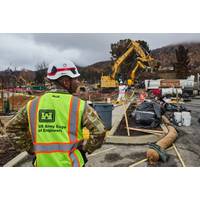
USACE's Major General Jason Kelly & Modernizing America’s Waterways
at West Point, New York, and graduated in 1994 with a commission as an engineer officer.Major General Kelly holds a bachelor’s degree in mathematics from West Point, and master’s degrees in engineering management from the Missouri University of Science and Technology, in statistics from the Georgia Institute of Technology, in Joint Campaign Planning and Strategy from the National Defense University and in Strategic Studies from the U.S. Army War College.Kelly’s thirty-year career assignment history is vast. He has held Army leadership positions at every level of command and staff with

Eight Scientists Named 2025 Schmidt Polymaths to Pursue Research in New Disciplines
University. Dr. Fordyce will work toward enabling crowd-sourced, megascale measurements of protein function, which will yield critical data required to drive revolutionary advances in functional protein design.Saad Bhamla, Associate Professor in the School of Chemical and Biomolecular Engineering, Georgia Institute of Technology. Dr. Bhamla will develop low-cost technologies to tackle planetary-scale challenges, including AI-enabled point-of-care diagnostics in low-resource environments. They will also engineer autonomous morphing machines that adapt, evolve and learn like living systems.Uri Ben-David
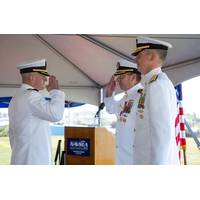
NUWC Division Newport Hosts Change of Command
Newport as he relived Capt. Chad F. Hennings during a change of command ceremony held on Sept. 3. Behm, a 2004 graduate of the U.S. Naval Academy, most recently served as the commanding officer of the USS Hartford (SSN 768). His previous submarine tours include the USS Oklahoma City (SSN 723), USS Georgia (SSGN 720), USS Florida (SSGN 728) and USS New Hampshire (SSN 778). Ashore, he served as shift engineer at the Nuclear Power Training Unit, junior board member on the Pacific Fleet Nuclear Propulsion Examination Board, and chief of operations for the Office of Stockpile Sustainment at the National
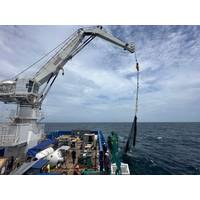
Weeding Marine Debris Out of Flower Garden Banks National Marine Sanctuary
From June 27–July 2, NOAA, the National Marine Sanctuary Foundation, Moody Gardens, Georgia Aquarium, T&T Salvage LLC, and Anchor Diving joined forces and expertise aboard a Bordelon Marine vessel to remove over 1,700 pounds of debris (including 18 ghost nets and three trawling sledges) from Flower Garden Banks National Marine Sanctuary. Flower Garden Banks, the only national marine sanctuary in the Gulf, is home to a diverse array of marine life, including mesophotic ecosystems, which exist within the ocean’s twilight zone at depths that are outside the limits for recreational
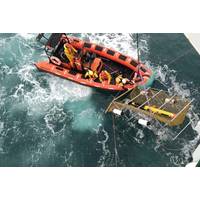
... And the Winner is ...
the Water Resources Department of Bihar.Photo by Vikram Pratap Singh, Pan India Consultants Pvt Ltd, taken at Marine Drive, Patna, India. / Image courtesy Teledyne MarineWinner Underwater AwardA stunning image of a Teledyne Webb Slocum Glider on its way into the blue Atlantic waters off the Georgian coast. A Teledyne G3 Slocum Glider dives into the blue Atlantic waters after being deployed off the Georgia coast by scientists from the University of Georgia's Skidaway Institute of Oceanography.Image by Jackson Schroeder, University of Georgia Skidaway Institute of Oceanography, taken off
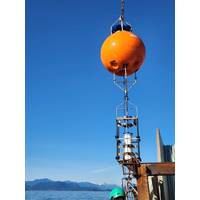
ASL Concludes Metocean Survey for Canada’s Gas Transmission System
March 2024.All subsea equipment and wave buoy mooring anchors were successfully recovered, with full recovery of all datasets. The field program measured directional waves and subsea currents at six individual moorings deployed at three strategic locations along the pipeline route in the Strait of Georgia near Powell River, BC and Texada Island.These measurements utilized ASL’s new PBM-15 polyethylene deepwater buoys to support data collection in water depth of up to 400 m.The datasets collected from this program will be used in numerical modeling studies to support pipeline spanning and integrity
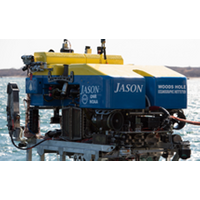
TDI-Brooks Delivers Deepwater Atlantic Habitats II Report
, Canyon and Seep Communities.” It is the final deliverable of the BOEM Contract called Deep SEARCH, conducted in partnership with the U.S. Geological Survey.Initially, the study was a five-year, collaborative scientific research program focused on the outer continental shelf between Virginia and Georgia. The COVID crisis extended the program for another 18+ months. TDI-Brooks surveyed the region’s deep-sea coral, cold-seep, and canyon communities with the aim of developing better predictive capacities for the community types encountered.The sites were studied during five directly supported
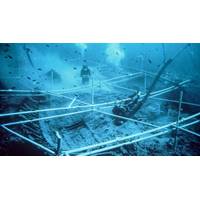
Study Sheds New Light on Ancient Shipwreck off Cyprus
sources of information for archaeologists to reconstruct the human past. In underwater sites like where the Kyrenia was buried, archaeological materials decay much more slowly. As a result, organic materials like wood, seeds or rope can be much better preserved than on land," said University of Georgia anthropology professor and study co-author Brita Lorentzen.The discovery of a deepwater shipwreck off the coast of Israel, dating to roughly 1300 BC, was announced just last week."Ships were a critical source of transportation in the ancient world, which allowed people to move from one place
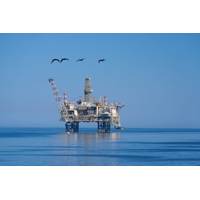
BP Launches Its ‘Largest-Ever’ Seismic Program at Azerbaijan Oil Field
4D technology to be used for this program will allow us to acquire further in-depth data about the reservoir helping us identify ways to minimize future well surprises and maximize the field recovery in the next decades,” said Roshni Moosai, BP’s vice president subsurface, Azerbaijan, Georgia and Türkiye region.ACG is the biggest oil field operated by BP, and to date more than 4.3 billion barrels (581 million tons) of oil have been produced from the field.West Azeri Platform Marks 1 Billion Barrels MilestoneThe ACG Production Sharing Agreement (PSA) was initially signed in September

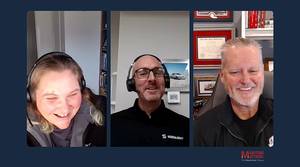
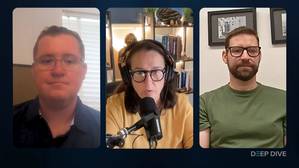
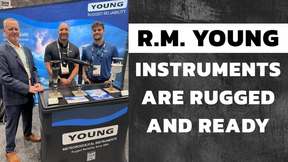

 December 2025
December 2025





